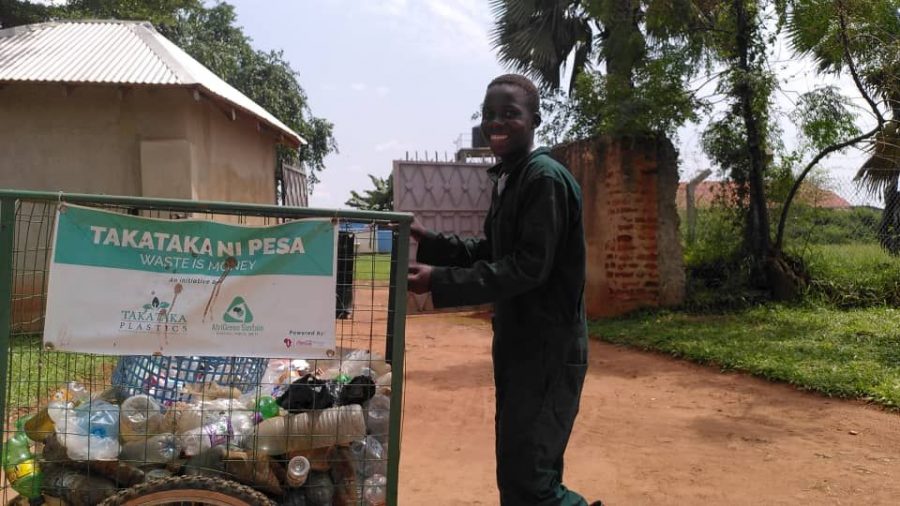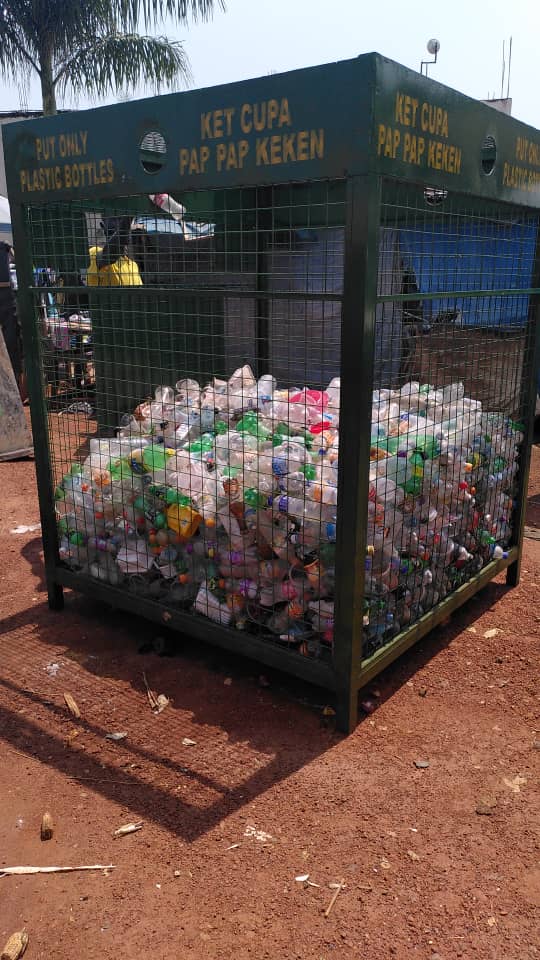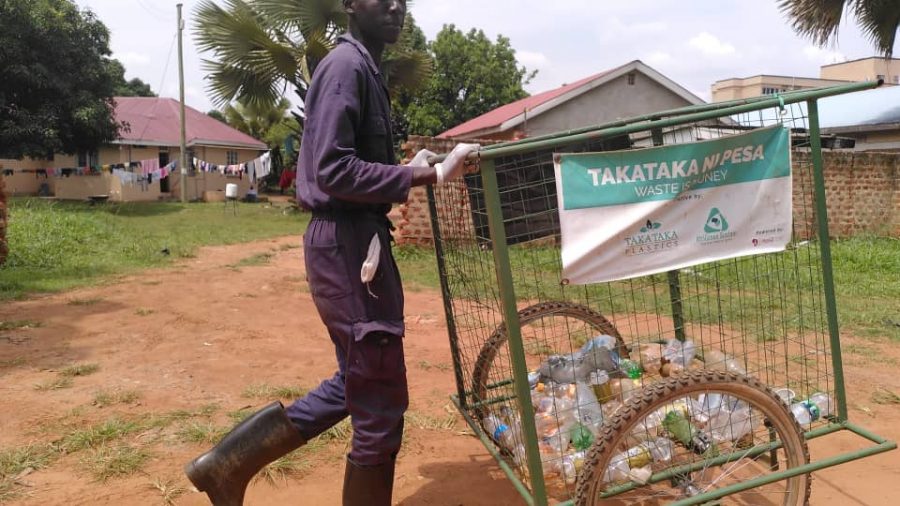Plastic banks in Gulu City for increased recycling
Innovative solutions for increased community participation in plastic waste recycling

Copyright: Takataka Plastics/Peter Okwoko
Gulu is a plastic waste sink – plastic comes in but never gets out, because recycling options are limited. Since the city is a six-hour drive from the nearest recycling plant, the high transportation costs make it economically unattractive to send low-value plastic waste there for recycling. Hence, the plastic is either buried in an unlined landfill, burned or littered on the street, where it blocks drainage channels, pollutes water sources, and forms stagnant waters which are a threat to public health.
The Gulu Integrated Catchment Management Partnership aims at reducing the amount of solid waste entering the environment and securing the quality and quantity of the city’s main water source. Takataka Plastics as the main private sector partner upcycles waste, both organic and plastics, into high-quality, affordable products. The company contributes to reducing the amount of waste in the streets of Gulu, while creating jobs, as well as safeguarding and stimulating investments.
Increased community participation in plastic recycling
Among the innovative solutions for increased community participation in plastic recycling, Takataka, with support from the KFW’s Integrated Programme to Improve the Living Conditions in Gulu, has come up with a low-cost sustainable solution: the bottle banks. The barred boxes offer an opportunity for community members to easily sort plastic from other waste categories. People simply deposit plastics they would have otherwise thrown away with other waste into the banks.

Copyright: Takataka Plastics/Peter Okwoko
The banks are mostly placed in public places like schools, hospitals, police stations and markets. A cart belongs to each of them. When the banks are full, young people empty them and use the carts to deliver the plastic to Takataka Plastics in exchange for cash. The youths are paid according to the kilograms they deliver. Currently, there are only six plastic banks in the city. Throughout the course of the partnership, more mechanisms like the banks will be implemented. Increased community participation in solid waste management is essential to reduce pollution in Gulu and protect the city’s water sources.

Copyright: Takataka Plastics/Ochan Clifford
To stay up to date also follow us on Twitter!